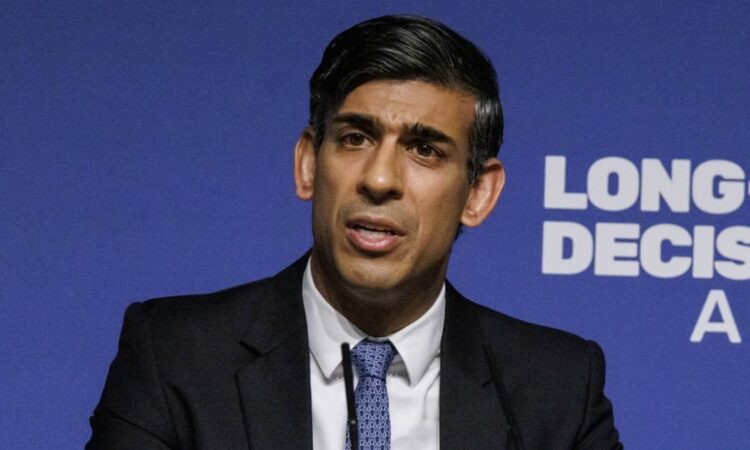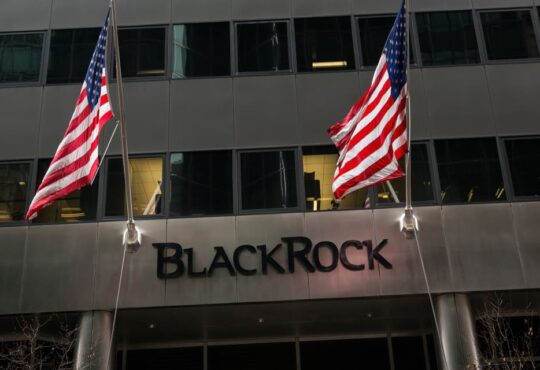
The scale of artificial intelligence (AI) transformation to economic and commercial life is hard to fathom.
In a week when AI regulation is on the agenda in Washington and at Bletchley Park it is possible to see its capacity to transform.
British education innovator Pearson offered practical insight, as it upgraded its prospects.
It noted that generative AI was helping students deal with complex problems. Pearson plans to make greater use of in gearing up its proprietary education blueprint in areas such as language learning.
The big concern of government is that AI and its use is speeding ahead so fast that safety is being lost in the slipstream.
The White House is issuing an executive order requiring developers of AI to register systems that could pose a threat to US national security.
Rishi Sunak’s ‘AI Safety Summit’ at the intellectual home of codebreaker Alan Turing is designed to show leadership in an area of technology where British pioneering has excelled.
UK trailblazer Deep Mind was snapped up by Google in 2014. In spite of the expected attendance of EU president Ursula von der Leyen at the summit, along with US vice-president Kamala Harris, creating an accord on anything but basic safety rules seems unlikely.
That is critical but there are competition issues also at stake.
Ahead of the summit, the City of London Corporation notes that private investment in British AI scale-ups reached £3billion in 2022, which is double the funding of France, Germany and the rest of Europe combined.
Related Articles
HOW THIS IS MONEY CAN HELP
So no great surprise that President Emmanuel Macron won’t be honouring the UK with his presence. Paris has committed €500million (£430million) of state funding to AI including €40million (£34million) to open-source, under which the tech is offered to all-comers.
The fear of UK start-ups, such as London unicorn Stability AI, is that Bletchley will entrench domination by big tech. We recently saw the sharp elbows of Microsoft buying a dominant role in gaming with the purchase of Activision Blizzard, bulldozing its way through competition regulation.
A commitment to open architecture allowed Cambridge-based Arm Holdings to fight off rival Nvidia. That didn’t stop the US chip designer from backdoor entry when it became a cornerstone investor in Arm at this year’s New York listing.
Sunak is expected to come to the summit bearing up to £400million of goodies for British AI, including funds to speed cancer research. How much of this will turn out to be new funds is a moot point.
It will be a drop in the ocean when measured against vast resources available to ruthless Silicon Valley behemoths.
Big squeeze
Monetarism became deeply unfashionable in recent times, with sceptics describing it as no better than astrology.
Adherents to the faith, such as Tim Congdon of International Monetary Research, were disregarded.
Yet he was among the first to recognise that the Covid splurge of quantitative easing could only end up with a great inflation.
The most dove-ish member of the Bank of England’s interest rate setting Monetary Policy Committee (MPC), Dr Swati Dhingra of the London School of Economics, has been voting for an interest rate pause, as monetary policy takes time to work.
She can be expected to do the same when the MPC gathers this week to decide whether or not it should hold rates again at 5.25 per cent.
Julian Jessop, at the Institute for Economic Affairs, fears the Bank has gone too far. He tweets that UK ‘broad money’ – cash, deposits and other short dated instruments – is collapsing in a trend ‘consistent’ with a severe recession.
So far the resilient British economy is refusing to comply, although the sharp drop in mortgage approvals in September is not cheering.
The case for offsetting the monetary squeeze with tax cuts is ever stronger.
Honey pot
HSBC ran up £24billion profit in the first nine months of the year.
So it is crazy to focus on a third quarter set-aside of £410million to cover property losses in China – unless there is fear that there is more to come.
Investors will be thankful for a £2.5billion share buyback, which will boost pension and savings pots.
The Lib Dems describe this as the result of Tory ‘economic vandalism’. Hardly!
Some links in this article may be affiliate links. If you click on them we may earn a small commission. That helps us fund This Is Money, and keep it free to use. We do not write articles to promote products. We do not allow any commercial relationship to affect our editorial independence.






